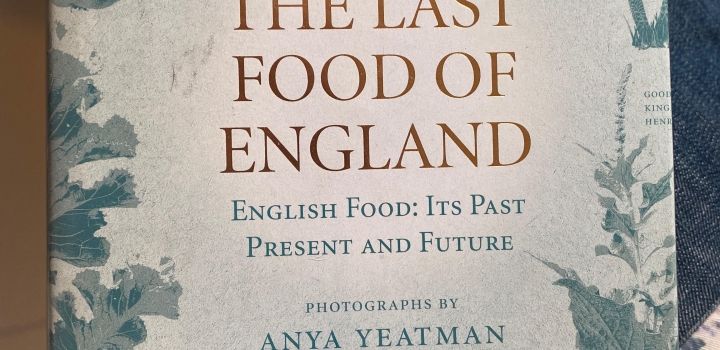
I love Marwood Yeatman. Some of you may have read his writing. Many of you will never have heard of him.
The elusive private chef lives in an old pub in Hampshire, England, with his wife, a photographer. Like a latter-day Tom and Barbara Good, they grow their own vegetables, brew their own beer and smoke their own hams. He doesn't have a TV show, he is not well known, his writing is rambling and sometimes pompous. He appears to be a wonderful English eccentric who appears to have impressed a publisher.
In 2007 he released a large, heavy book that traced the previous 25 years of his life in which he searched for England's true food. Many think of English food as being stodgy. He saw English food as the bounty of a green and pleasant land, all gooseberries and boletus, crabs and oysters, Stilton and Swaledale. Of blazing fires over which oxen roast and fertile soil that has fed the people of this part of the world since the first spear-wielding families crossed the exposed Dogger Bank. He is an indigenous Englishman who went walkabout for a generation and came back with an amazing story to tell. His book, The Last Food of England, is not just a paean to England's food. It is a beautiful, almost Quixotic, ramble through English culture, some endangered, seen through the lens of food.
The Last Food of England does not contain recipes as such, but more descriptions and suggestions. Here is a way of making traditional duck soup.
Take some duck bones. Cover them with water and bring to simmering point. Skin until the froth is white. Add salt, peppercorns, a bay leaf, and any leek or celery tops that might otherwise go for compost. Cook very gently for four hours, add more water when necessary. Strain through a colander, then a fine sieve.
To the stock, add chopped garlic, onion, or leek plus carrot or dried mushrooms. Simmer for 20 to 30 minutes, adding 25 g porridge oats, pinhead oatmeal, or couscous to every pint of liquid to thicken the soup. Shredded cabbage and sprout tops can go in at the end. Adjust the seasoning. To beef up the flavour try little soy or white vinegar. To heighten the colour, use sweet paprika. The flavour improves over a number of days.
Order our 2O19 Studebaker Pinot Noir today:
- 3 bottles $105.00 ORDER HERE
- 6 bottles $200.00 ORDER HERE
- 12 bottles $380.00 ORDER HERE
Shipping:
- 3 bottles sales $10
- 6 bottles sales $15
- 12 bottles sales $20




